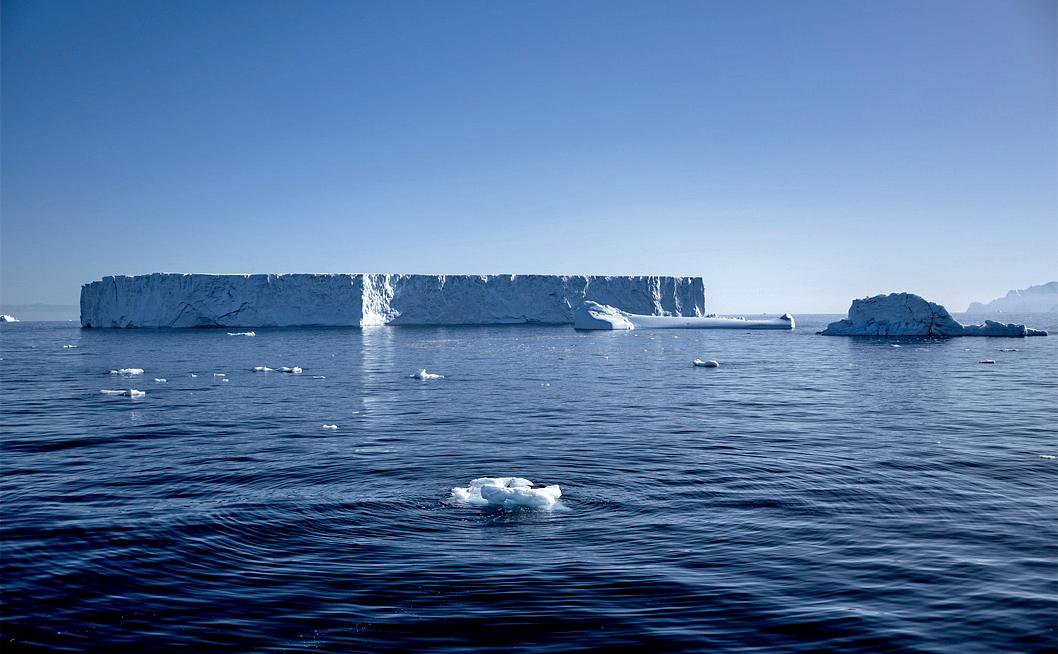
By the end of March, the surface temperature of the world's oceans was above anything seen in the 40 years that satellites have been measuring it. Records were "headed off the charts" and, as the heat refused to dissipate for more than a month, the Earth had entered "uncharted territory", scientists said.
The temperature at the ocean's surface - like that on land - is being pushed higher by global heating, but can jump around from one year to the next as weather systems come and go. But in the 2km below the surface, things are different.
The temperature down there has been on a relentless climb for decades.
"The heat-holding capacity of the ocean is mammoth," says Dr Paul Durack, a research scientist specialising in ocean measurements and modelling at the US Department of Energy's Lawrence Livermore National Laboratory. "The ocean captures more than 90% of the imbalance of energy that we're creating because of anthropogenic climate change." The ocean soaks up more of the direct energy from sunlight than land does. But as greenhouse gases trap more of the energy that's reflected allowing less to escape to space - the ocean tries to balance itself with the heat in the atmosphere above. The latest UN climate assessment laid out the heat gain. Between 1971 and 2018, the ocean had gained 396 zettajoules of heat.
How much is that? Scientists have calculated it is equivalent to the energy of more than 25bn Hiroshima atomic bombs. And that heat gain is accelerating.
この記事は The Guardian Weekly の May 26, 2023 版に掲載されています。
7 日間の Magzter GOLD 無料トライアルを開始して、何千もの厳選されたプレミアム ストーリー、9,000 以上の雑誌や新聞にアクセスしてください。
すでに購読者です ? サインイン
この記事は The Guardian Weekly の May 26, 2023 版に掲載されています。
7 日間の Magzter GOLD 無料トライアルを開始して、何千もの厳選されたプレミアム ストーリー、9,000 以上の雑誌や新聞にアクセスしてください。
すでに購読者です? サインイン

We're making a music video-but I can't play, or even act
I am in a lifeboat station on the south coast, standing beneath the stern of a rescue vessel, wearing a borrowed fisherman's jumper and holding a banjo. There are lights on me, and I am very much at sea.

BOOKS OF THE MONTH
The best translated fiction

Village people A chilly tone of doom infects these unsettling folk tales, following a settlement from the deep past to near future
The quintessential \"bad place\" is one of the staples of horror fiction. For Stephen King, the bad place - think the Overlook Hotel in The Shining - usually acts as a repository for a long-forgotten evil or injustice to resurface.

A labour of love Haruki Murakami revisits a hypnotic city of dreams and a tale of teen sweethearts, in material he's worked on over four decades
The elegiac quality of Haruki Murakami's new novel, his first in six years, was perhaps inevitable considering its origins. The City and Its Uncertain Walls began as an attempt to rework a 1980 story of the same title, originally published in the Japanese magazine Bungakukai, which Murakami, unsatisfied, never allowed to be republished or translated.

Leading questions The former German chancellor slights her enemies by barely mentioning them-and is frustratingly opaque on her own big calls
Towards the end of her 16-year tenure, former German chancellor Angela Merkel was garlanded with superlative titles: the \"queen of Europe\", the \"most powerful woman in the world\".

Double vision
Is the pay really that good? Do you get bored? We ask 'David Brent', 'Nessa' and 'Ali G' what it's like to make money as the lookalike of a comic creation

Robopop Teen star who does not exist
Miku is a 'Vocaloid' -a holographic avatar that represents a digital bank of vocal samples-performing sellout tours for thousands of very real mega-fans

The show must go wrong
How did a farce about a gaffe-filled amateur dramatic whodunnit become one of Britain's greatest ever exports, the toast of dozens of countries?

Europe's latest radical populist typifies a swing on the continent
Politics in Romania can be a bloody business, especially on the right. The excesses of the Iron Guard, an insurrectionary, violently antisemitic, ultranationalist 1930s political-religious militia, stood out even at a time when fascist parties were wreaking havoc in Germany, Italy and Spain. Given what is happening in Europe today, the events of that period are instructive.

It's high time to tax cannabis and fix French finances
France might not be broke, but the state of its public finances is, well, definitely not good. Total debt stands at €3.2tn ($3.4tn) - 112% of GDP. Interest payments on that debt are the second largest public expenditure after education (which includes everything from crêche, or preschool, to universities) and are higher than the amount spent on defence. And this year's budget deficit is projected to be 6%, three points above the EU's 3% limit.